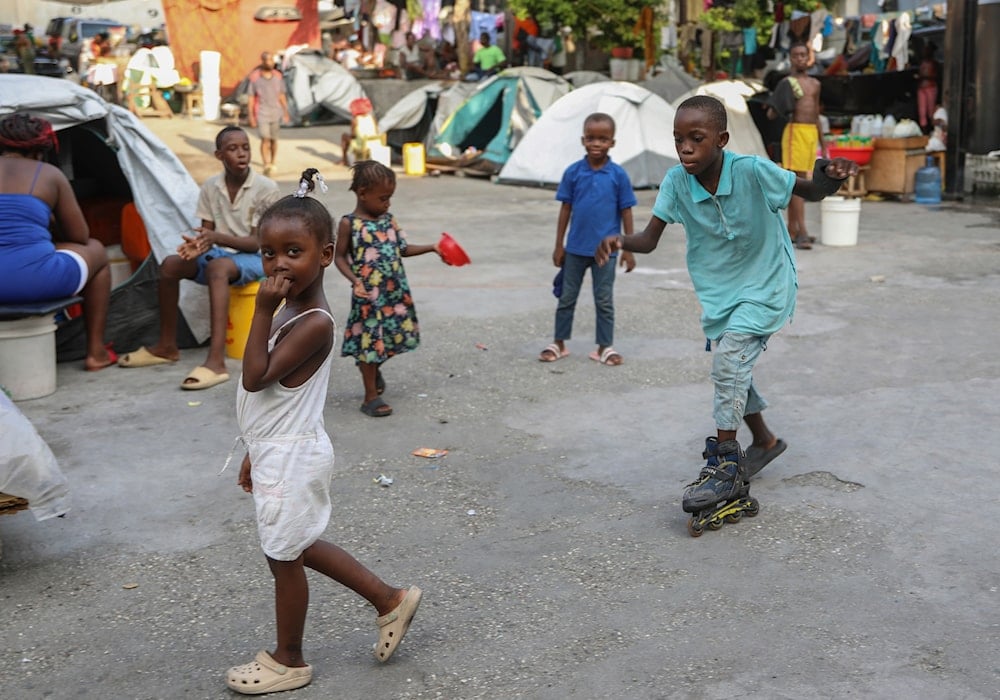5 children killed in Haiti every week due to continuous gang violence
The Bureau de Nutrition et Développement (BND) has been providing children with school lunches to keep them off the streets and prevent them from accepting lucrative offers from gangs.
-

Children play at a gym converted into a makeshift shelter for people displaced by gang violence in Port-au-Prince, Haiti, Thursday, Aug. 15, 2024. (AP)
For the first six months of 2024, five children have been killed or injured each week in Haiti due to gang violence.
A review of UN data by Save the Children shows that at least 131 children have been murdered or injured so far this year, marking a 47% increase from the final six months of 2023 when 89 incidents were reported.
The majority were struck by fired bullets during shootouts between armed groups and law enforcement, or during machine gun attacks by gangs on their neighborhoods.
As a result of suspicions that they backed the police, a rival gang, or a local self-defense group, a small but increasing number of such children have been deliberately attacked.
Chantal Sylvie Imbeault, the organization's country director for Haiti, expressed, “We are at a loss for words when it comes to the unimaginable suffering children in Haiti are enduring. Entire neighborhoods have been burned, kidnappings and sexual assaults are rampant, and children are being directly targeted or caught in the crossfire".
Offer of food sufficient to tempt into gangs
Haiti’s deep and rampant poverty makes it easy to convince children to take up arms or work as informants, say civil society groups. With one in two children regularly going hungry and schools often closed, the offer of regular food can be sufficient.
“There’s a lot of young boys, and a lot of girls too, that are joining the gangs for security, but also because they don’t have any opportunities,” said Emmline Toussaint, from the Bureau de Nutrition et Développement (BND).
Civil society groups believe children are easily persuaded to take up guns or operate as spies in Haiti due to the country's extreme and pervasive poverty.
In an effort to keep kids in school and off the streets, where they are more likely to be recruited to take up arms, BND provides school lunches.
“We still have serious concerns about the integration of child protection measures by the Multinational Security Support Mission. With armed groups in Haiti actively recruiting children, their safety cannot be an afterthought,” Imbeault noted.
The situation in Haiti plummeted starting late February as powerful and well-armed groups took control of most of the capital Port-au-Prince and much of the country, saying they aimed at toppling Haitian Prime Minister Ariel Henry – who resigned in June.
Garry Conille, Haiti's ex-prime minister from 2011 to 2012, was then named the new prime minister by Haiti's transitional government council.

 3 Min Read
3 Min Read








